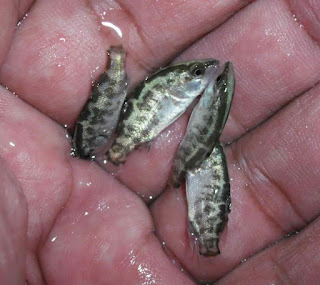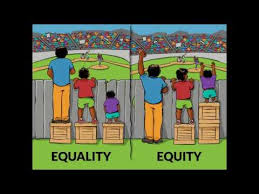Experiential Learning
I find the experiential learning is at the heart of all my teaching whether I teach Mathematics, Study of Religion or Biology. When the student can see, touch or do something then they engage with the curriculum at a deeper level and in my opinion retain important teaching points in their long term memory. It is learning by doing - reflecting and creating a piece of work based on the experience .
WAYS I HAVE CREATED EXPERIENTIAL LEANING IN MY CLASSROOM
From way back to my first year of teaching I have searched and searched for ways to bring the world into my classroom, to create meaning for the learning in my students minds - Have you ever heard " why are we doing this, I'm never going to use it" for me that is a sign that I am not meeting my kids where I need to, its a sign they are bored and not engaged.
SO what DO I do !
1. CREATE AN AUDIENCE FOR YOUR STUDENTS
I try to do this in many tasks in my classroom - I have created an audience for an assessment and I have created audiences in my formative lessons. Giving the students an audience that is directly related to real life engages the students as there is a real reason that we are striving for a certain learning goal. A few examples from my teaching practise :
- My students were on a Vocational Pathway and many had English as a Second Language and the task - pre written and provided - was to complete an environmental assessment of a resort in a remote location - the assessment would be presented as an oral. For ESL kids this is a complex task that could lead them to lose motivation and feel like the task was bigger than them. I changed this task and made it experiential for them by organising to spend time with a local ranger - in his workplace and in our school - he told them about the features he managed and then when it came to presenting the assessment the students presented it to him - he came back for 2 hours to listen to the kids !!!! how amazing for them, to really be considered.
2. IMMERSE THE STUDENTS IN THE WORLD OF YOUR CURRICULUM
- As a part of the Earth Sciences unit we were studying the effects of climate change - I added into my lessons a real time live link up with a research vessel in the Pacific Ocean that was studying historical data on Climate change by taking core samples www.joidesresolution.org . The kids spoke to scientists who explained what they were doing, the data that they were taking and then showed them the equipment used ! It was phenomenal - the scientists Rocked they definitely knew how to work the crowd and the kids did something that was
out of the ordinary and related to their learning.
I am a Biology teacher so this is where a lot of experiential learning comes from - But I also have a contact with a teacher/missionary/Nun who spent time on Kiribati and she comes to my class every year and teach my students about rising sea levels, and environmental refugees with pictures and a song and she explains her life on the island.
3. FOOD WORKS
With maths I love bringing in food! who doesn't - FRACTIONS who loves teaching Fractions ME _ I get choc chips and count them into my cookie mix - and then we deconstruct our cookies finding out who has what fraction in their cookie - I use cookies too for probability.
4. USE EXPERTS
However it doesn't only have to be science based to be experiential - In study of Religion I find the religions I am teaching about students may have never ever met a person of a religion different to them. On this occasion when teaching about sacred texts I put together a panel of my friends and they came in on the same day - there was an Atheist, a Jew, Muslim and a Hindu person as well as an Anglican person. They made a panel and told the students about their religions sacred texts and the students got to touch them and look at them and ask any questions. It was a really great experience for me also.
All you need to do for this is look at your staff - there are experts among you that you can tap into I'm sure - when teaching Diabetes - I ask the diabetic staff member to explain a day in their life and why - when teaching about IVF and GIFT and adoption I get a staff member who has adopted a child to come in and explain her amazing experience of adopting her beautiful son - we have a staff member from another state who has completed a doctoral thesis and when the topic of her thesis comes around I invite her to teach the lesson - she brings the PhD shows the kids and then delivers the lesson !
5. EXCURSIONS
Lastly I use excursions - I find these days expenses and time out of class are hindrances to taking the students out to experience different scenarios that are not based on the assessment. I know that there are a lot of costs of getting kids to school and I don't like to add to that burden for the parents if I don't have to. I do remember an awesome excursion I organised once in Marine Science - we were learning about marine agriculture which was very relevant as it was in Broome and I organised for my 13 boys to go to Willie Creek Pearl Farm (check out Willie Creek here) for the day - it was fabulous they learnt so much and it engaged them on the topic - we then took our ideas and grew out Barramundi fingerlings to sell onto the Intercontinental Hotel for their water features -
Photo Credit :http://webiz.co.th/files/photos/840943/742028.jpg
Lots of research on experiential learning can be found when you do a quick search and there are models to follow and different processes that can be undertaken. Names such as Hahn, Joplin, or Kolb can be a good starting point when you are looking into this way of teaching. Some schools such as Scots College in NSW use this way of teaching as a whole school approach and their website is very interesting to read.
You many also like to investigate John Dewey and Jean Piaget whose early work explained the four elements of experiential teaching.
Thanks for reading my third Blog - Next time I plan to share a little but more about me and who I am and how I came to be a teacher and leader in the College where I work.
You can follow me on instagram @ima_teacher_of_the_world
If you have a topic that is burning for you or you would like me to write about in a future blog be sure to drop me a line at My Email and I would love to hear from you.









